Our Board
Haroon Akram-Lodhi
Professor, Department of International Development Studies
Trent University
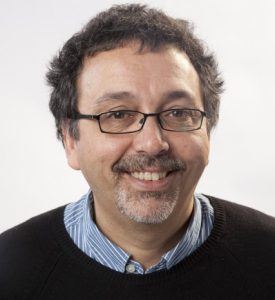 Haroon Akram-Lodhi teaches agrarian political economy and political ecology. He is Professor of International Development Studies and Chair of the Department of International Development Studies at Trent University in Peterborough, Canada. A Fellow of Food First, the Institute for Food and Development Policy, he is also: an Associated Research Professor of the Academic Unit in Development Studies at the Universidad Autónoma de Zacatecas, Zacatecas, Mexico; Adjunct Professor of Economics in the Master’s in Development Practice program at the James T. Laney School of Graduate Studies, Emory University, Atlanta, USA; and a Visiting Scholar in that School’s Institute for Developing Nations.
Haroon Akram-Lodhi teaches agrarian political economy and political ecology. He is Professor of International Development Studies and Chair of the Department of International Development Studies at Trent University in Peterborough, Canada. A Fellow of Food First, the Institute for Food and Development Policy, he is also: an Associated Research Professor of the Academic Unit in Development Studies at the Universidad Autónoma de Zacatecas, Zacatecas, Mexico; Adjunct Professor of Economics in the Master’s in Development Practice program at the James T. Laney School of Graduate Studies, Emory University, Atlanta, USA; and a Visiting Scholar in that School’s Institute for Developing Nations.
The focus of Dr. Akram-Lodhi’s research is the political economy of agrarian change in developing capitalist countries, the economic dimensions of gender relations, and on the political ecology of sustainable rural livelihoods and communities in contemporary poor countries. He is a Member-at-Large of the Executive Council of the Canadian Association for the Study of International Development and on the Board of the Canadian Consortium of University Programs in International Development Studies. He currently acts as a Gender and Poverty Adviser to the United Nations Development Programme’s Gender Team, working on gender-responsive economic policy in Africa, Asia and the Pacific. Dr. Akram-Lodhi has lived, taught, and conducted research in numerous countries, published extensively in peer-reviewed journals, and has undertaken advisory services for a wide variety of multilateral, bilateral and non-governmental international development organizations.
Dr. Akram-Lodhi’s most recent book is Hungry for Change: Farmers, Food Justice and the Agrarian Question (2013).
Cynthia Barrow-Giles
Professor of Political Science
The University of the West Indies
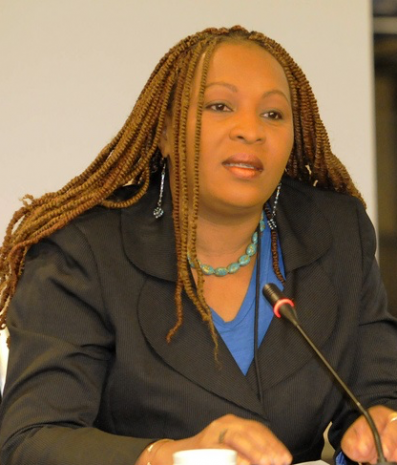 Cynthia Barrow-Giles is a Lecturer in Political Science in the Faculty of Social Sciences at the University of the West Indies’ Cave Hill Campus. She has occupied multiple positions at the University, including Deputy Dean of the Faculty of Social Sciences and Head of the Department of Government, Sociology and Social Work. Published extensively, some of her recent works include: Introduction to Caribbean Politics: Texts and Readings (2002); Living at the Borderlines: Issues in Caribbean Sovereignty and Development (2003) edited with Don D. Marshall; General Elections and Voting in the Engish Speaking Caribbean: 1992-2005 (2006) with Tennyson D. Joseph; and Women in Caribbean Politics (2011). She has served as a member of the Commonwealth Office Expert Team, where she monitored the Sri Lankan Presidential Election in 2008-2009, and the Ghanaian Presidential Elections and Run-Off in 2009 and 2012. She has also served as a member of the St. Lucia Constitutional Reform Commission and is currently a member of the International Advisory Board for the Round Table: Commonwealth Journal of International Affairs and a member of the Editorial Committee of the Journal of Eastern Caribbean Affairs.
Cynthia Barrow-Giles is a Lecturer in Political Science in the Faculty of Social Sciences at the University of the West Indies’ Cave Hill Campus. She has occupied multiple positions at the University, including Deputy Dean of the Faculty of Social Sciences and Head of the Department of Government, Sociology and Social Work. Published extensively, some of her recent works include: Introduction to Caribbean Politics: Texts and Readings (2002); Living at the Borderlines: Issues in Caribbean Sovereignty and Development (2003) edited with Don D. Marshall; General Elections and Voting in the Engish Speaking Caribbean: 1992-2005 (2006) with Tennyson D. Joseph; and Women in Caribbean Politics (2011). She has served as a member of the Commonwealth Office Expert Team, where she monitored the Sri Lankan Presidential Election in 2008-2009, and the Ghanaian Presidential Elections and Run-Off in 2009 and 2012. She has also served as a member of the St. Lucia Constitutional Reform Commission and is currently a member of the International Advisory Board for the Round Table: Commonwealth Journal of International Affairs and a member of the Editorial Committee of the Journal of Eastern Caribbean Affairs.
Ms. Barrow-Giles is a citizen of Saint Lucia, and has an M.Phil from the Consortium Graduate School in Mona, Jamaica.
Brian Francis
Professor of Economics
The University of the West Indies
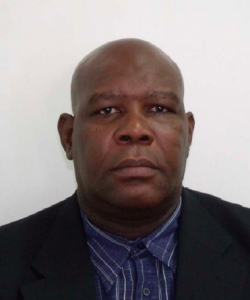 Brian Michael Francis has served as an economist for the Eastern Caribbean Central Bank, a Research Assistant with the Inter-American Institute for Cooperation on Agriculture (IICA), and a Senior Research Officer in the Ministry of Tourism in Barbados. Dr. Francis has also served on the Board of Directors of various local, regional and international organizations including the Grenada Development Bank, the Government of Grenada Tenders Board, the Caribbean Development Bank, the Eastern Caribbean Central Bank Monetary Council, The International Monetary Fund, and the World Bank.
Brian Michael Francis has served as an economist for the Eastern Caribbean Central Bank, a Research Assistant with the Inter-American Institute for Cooperation on Agriculture (IICA), and a Senior Research Officer in the Ministry of Tourism in Barbados. Dr. Francis has also served on the Board of Directors of various local, regional and international organizations including the Grenada Development Bank, the Government of Grenada Tenders Board, the Caribbean Development Bank, the Eastern Caribbean Central Bank Monetary Council, The International Monetary Fund, and the World Bank.
Dr. Francis was presented with a National Independence Award for Academic Achievement in Economics in 1993. He has served as Permanent Secretary and Director General of the Ministry of Finance, Planning, Trade and Development in Grenada; Economic Advisor to the Government of Grenada; and Permanent Secretary in the Office of the Prime Minister, with responsibility for Project Development and Human Resources.
Currently, Dr. Francis works as a Senior Lecturer in the Department of Economics at the University of the West Indies. Widely published, he has written scholarly articles in various regional and international journals including the International Trade Journal, the Journal of Public Sector Policy Analysis, Energy Economics, the Journal of Eastern Caribbean Studies, and the West African Journal of Monetary and Economic Integration. He also writes a weekly column for both the Barbados Nation’s Business Authority and the New Today newspaper in Grenada, focusing on regional and international issues and their implications for businesses in the Caribbean.
Dr. Francis holds a doctoral degree in Economics from the University of Florida, with a specialization in International Trade and Economic Development. He also holds a Master of Science degree in Development Finance from the University of London and a Bachelor of Science degree in Economics from the University of the West Indies’ Cave Hill Campus.
Paul Shaffer
Associate Professor, Department of International Development Studies
Trent University
 Dr. Paul Shaffer joined the Department of International Development Studies at Trent University in January 2007 as an Assistant Professor. He teaches International Development Studies in an Economic Context and Advanced Topics in Development Theory and Research. In addition to his undergraduate teaching, Professor Shaffer is the Director of the Trent-in-Ghana Program, a position he has held since September 2008, and a faculty advisor to the annual SAID Conference, organized by students in the International Development Studies program.
Dr. Paul Shaffer joined the Department of International Development Studies at Trent University in January 2007 as an Assistant Professor. He teaches International Development Studies in an Economic Context and Advanced Topics in Development Theory and Research. In addition to his undergraduate teaching, Professor Shaffer is the Director of the Trent-in-Ghana Program, a position he has held since September 2008, and a faculty advisor to the annual SAID Conference, organized by students in the International Development Studies program.
His research interests include interdisciplinary poverty analysis, methodological pluralism, poverty reduction strategies, gender and poverty, impact assessment and monitoring of development programs and policies, political economy of development, development economics.
Professor Shaffer is widely published, and has written extensively on poverty, including qualitative and quantitative approaches to poverty analysis and methods of monitoring and assessing poverty. He has written in scholarly journals such as World Development, Third World Quarterly, the Journal of Development Studies and Real World Economics Review.
Professor Shaffer received his B.A. from the University of British Columbia, his M.A. from the University of Toronto, and his D.Phil. from Sussex University.
Cynthia Barrow-Giles
Professor of Political Science
The University of the West Indies
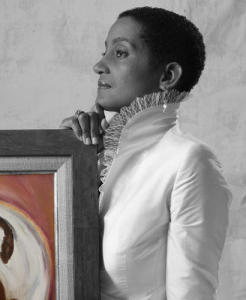 Patsy Lewis is a Senior Fellow of the Sir Arthur Lewis Institute for Social and Economic Studies (SALISES), University of the West Indies, Mona. Her areas of research include the developmental challenges of small states, regional integration movements and international trade. Her publications include: Social Policy Challenges in Grenada (2010); The Implications of the Global Economic Crisis for Caribbean Regional Integration (2010); The Caribbean and Pacific in a New World Order (2007) , with Hopeton Dunn, Matthew Smith and Biman Chand; and Surviving Small Size: Regional Integration in Caribbean Ministates (2002).
Patsy Lewis is a Senior Fellow of the Sir Arthur Lewis Institute for Social and Economic Studies (SALISES), University of the West Indies, Mona. Her areas of research include the developmental challenges of small states, regional integration movements and international trade. Her publications include: Social Policy Challenges in Grenada (2010); The Implications of the Global Economic Crisis for Caribbean Regional Integration (2010); The Caribbean and Pacific in a New World Order (2007) , with Hopeton Dunn, Matthew Smith and Biman Chand; and Surviving Small Size: Regional Integration in Caribbean Ministates (2002).
Sebastian Vollmer
Assistant Professor in Development Economics
University of Göttingen
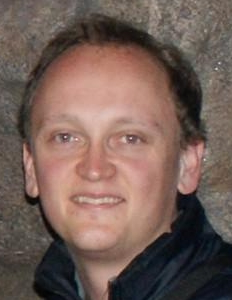 Sebastian Vollmer is currently an assistant professor of development economics at the University of Göttingen and an adjunct assistant professor of global health at the Harvard School of Public Health. He received his PhD in Economics from the University of Göttingen. He was a postdoctoral student at the Harvard Center for Population and Development Studies and a visiting assistant professor at Dartmouth College. He has served as a consultant to the United Nations Development Programme, the Asian Development Bank and the World Bank.
Sebastian Vollmer is currently an assistant professor of development economics at the University of Göttingen and an adjunct assistant professor of global health at the Harvard School of Public Health. He received his PhD in Economics from the University of Göttingen. He was a postdoctoral student at the Harvard Center for Population and Development Studies and a visiting assistant professor at Dartmouth College. He has served as a consultant to the United Nations Development Programme, the Asian Development Bank and the World Bank.



